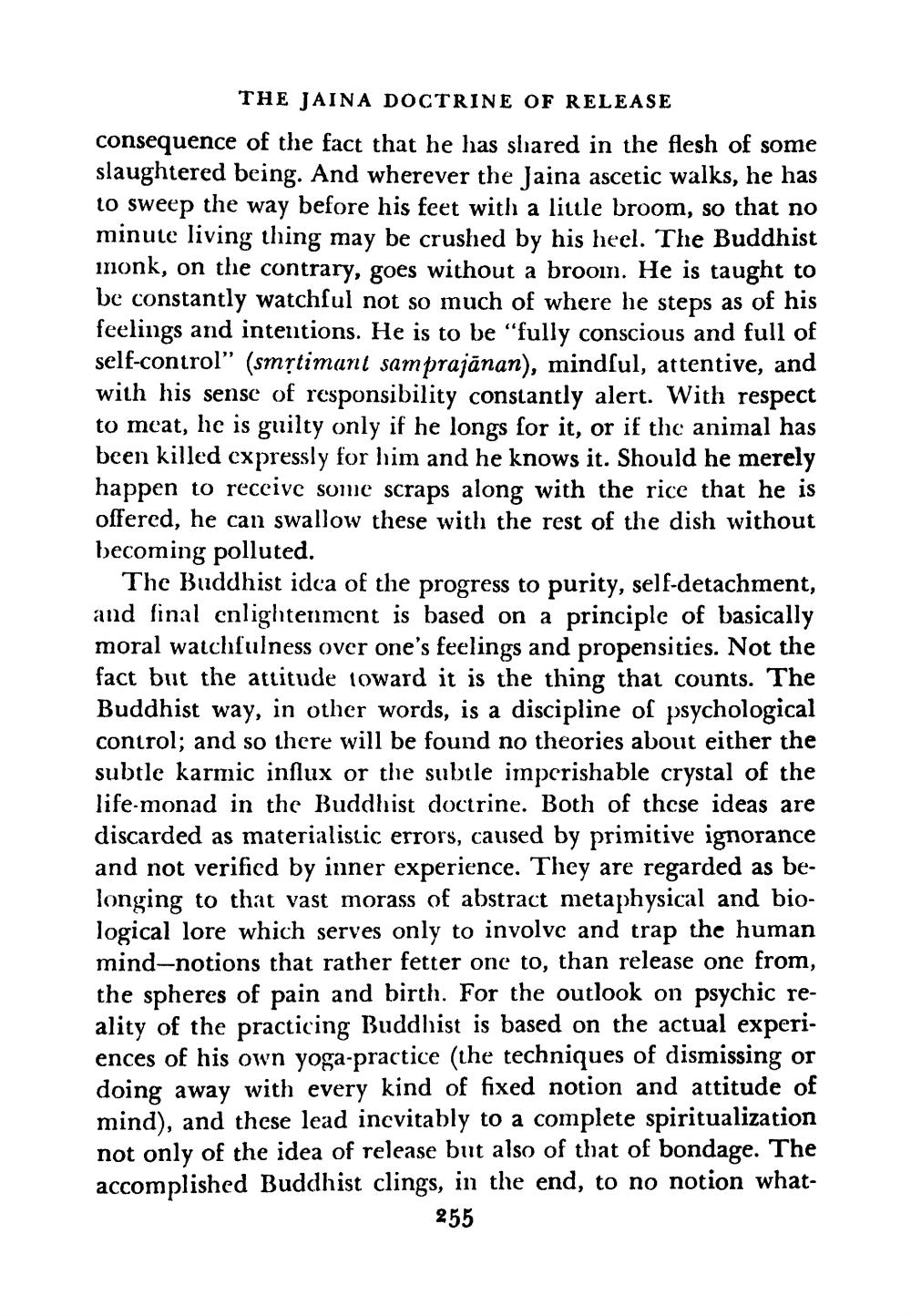________________
THE JAINA DOCTRINE OF RELEASE
consequence of the fact that he has shared in the flesh of some slaughtered being. And wherever the Jaina ascetic walks, he has to sweep the way before his feet with a little broom, so that no minute living thing may be crushed by his heel. The Buddhist monk, on the contrary, goes without a broom. He is taught to be constantly watchful not so much of where he steps as of his feelings and intentions. He is to be "fully conscious and full of self-control" (smộtimant sam prajānan), mindful, attentive, and with his sense of responsibility constantly alert. With respect to mcat, he is guilty only if he longs for it, or if the animal has been killed expressly for him and he knows it. Should he merely happen to receive some scraps along with the rice that he is offered, he can swallow these with the rest of the dish without becoming polluted.
The Buddhist idea of the progress to purity, self-detachment, and final cnlightenment is based on a principle of basically moral watchfulness over one's feelings and propensities. Not the fact but the attitude toward it is the thing that counts. The Buddhist way, in other words, is a discipline of psychological control; and so there will be found no theories about either the subtle karmic influx or the subtle imperishable crystal of the life-monad in the Buddhist doctrine. Both of these ideas are discarded as materialistic errors, caused by primitive ignorance and not verified by inner experience. They are regarded as belonging to that vast morass of abstract metaphysical and biological lore which serves only to involve and trap the human mind-notions that rather fetter one to, than release one from, the spheres of pain and birth. For the outlook on psychic reality of the practicing Buddhist is based on the actual experiences of his own yoga-practice (the techniques of dismissing or doing away with every kind of fixed notion and attitude of mind), and these lead incvitably to a complete spiritualization not only of the idea of release but also of that of bondage. The accomplished Buddhist clings, in the end, to no notion what
255




